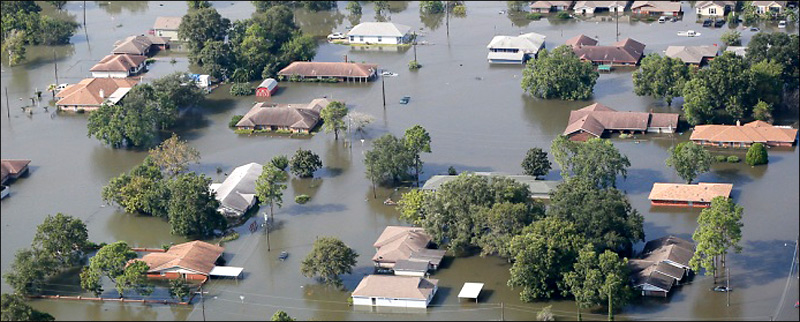Bad Politics = Bad Flood Insurance Pricing
Senate Majority Leader Chuck Schumer got headlines last week for stalling FEMA’s new overhaul of the flood insurance system.
Did it have anything to do with the actual risk of flooding? No. The New York Times article makes it plain: Schumer objects to the new plan because it will cost his constituents (aka donors) to pay higher rates. Rates that would actually reflect the very real risk of living in areas that flood often and will flood more in the future.
Does it make good sense to have politicians setting flood insurance rates instead of professionals? Or is it just bad politics?
What could possible go wrong with this approach? Let’s see… Politicians overriding the professionals at the National Flood Insurance Program (NFIP) typically produces record giveaways and debt. In the last Congress alone, $15 billion dollars of NFIP losses – debt to the Federal Treasury – was simply written off.
That means 15 billion dollars of relief went to certain homeowners. ALL tax payers paid.
Playing politics with the the Flood Insurance Program is a recipe for greater disaster ahead and will result in the loss of human life, property, and tons of cash during during future flash flood events.
Higher insurance premiums are a signal of higher risk and are meant to slow, deter, or even eliminate further development in flood prone areas.
In a healthy insurance market, actuarial data would drive the market price of premiums and reflect the real risk involved. Not politicians and certainly not cheap insurance sponsored by politicians.
“Insurance and Public Policy”, the title of Chapter 7 in my new book, Moving To Higher Ground: Rising Sea Level and the Path Forward makes my position clear.
The longer we depress the cost of flood insurance and promise that the government will take the responsibility for property in coastal areas, the longer the losses will mount. Programs like buying homeowners out at full value also have the effect to transfer the risk to the government, which means taxpayers at large.
We need smart policies. I believe the Federal government should get out of the insurance business by a fixed date, a decade or so in the future. Ten to twenty years would allow market forces and competitive underwriters to take over. As I cite in the book, the U.K. recently did this with a program called Flood Re: which I find to be a brilliant solution.
Public policy for increasing flood risk deserves a healthy debate. It is time, in fact it’s overdue. The U.S. has tried to improve the policy for years, but Congress has always buckled under to pander to voters. Flood forces are causing the topic to float to the surface.
For example there is a bill in the California legislature proposing to buy out homeowners and lease the property back to them. Though it has flaws, it recognizes that the current situation will continue to worsen without fundamental change.
Meanwhile, the water is rising…
In the News: John’s New Book On Sale SOON! Get a Free Excerpt.
Moving to Higher Ground will launch on April 6, 2021, and be available in bookstores and on-line around the world.
This is a major new work on climate change and sea level, and does a masterful job of explaining the complex forces that have brought us to a pivotal moment in time.
Can we actually stop climate change by 2050? Can we turn the clock back and go back to normal by 2060? Many leaders say we can, and the future is rosy, but this book tells a different story.
John proves, in easy-to-understand terms, that we can not stop global warming because there is already too much excess heat stored in our oceans. This heat will continue to profoundly affect us for centuries to come. Negatively.
This century will see the greatest migration in recorded history as people realize we can’t stop climate change and its ultimate effect, catastrophic sea level rise.
If you’d like to read a free excerpt of the book prior to pub date, and help us get the word out about this exciting new book, please send a YES email to: ambassador@thesciencebookshelf.com
Launch Date: Tuesday, April 6, 2021


